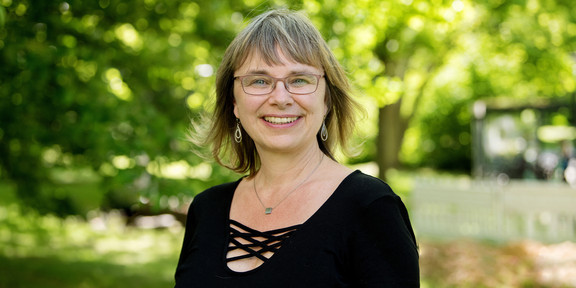Three questions for ...

1. The project on small-scale landlords of residential property, funded by the DFG, has now been running for several months. What has surprised you most so far?
First of all, the lack of research on this group despite housing being an increasingly important issue of inequality. The project's lead researcher, Philipp Kadelke, is therefore undertaking pioneering work, such as conducting in-depth interviews with landlords about their attitudes and behaviour, and examining how landlord-friendly the Federal Court of Justice is in legal disputes concerning rental housing. The preliminary finding from the interviews that it is challenging to reconcile internalised property rights and one's own claims to responsibility or a good relationship with tenants, especially when landlords and tenants live close to each other, also surprised me. Of course, landlords vary greatly, from those renting out a room in their house to those who have invested in properties hundreds of kilometres away and don't know their tenants personally. Living and property conditions differ greatly between eastern and western Germany.
2. Another of your projects deals with wealthy families (funded by the Volkswagen Foundation). Are there wealthy families willing to talk to you?
In this project, carried out in cooperation with SOFI Göttingen, it was somewhat difficult to gain access to the field, more so than with landlords. However, this was less due to the 'aloofness' sometimes attributed to the wealthy, and more due to the fact that, even within wealthy families, there is not necessarily much transparency regarding family finances. Consider, for instance, a large family business where questions such as the timing and scope of the next generation's rights of disposal over assets or their succession rights on the management board are highly sensitive. In some cases, we therefore deviated from our original plan of interviewing several family members together. Instead, we conducted individual interviews with siblings, parents and children, or aunts and nephews, for example, and compared their perspectives. This is, of course, only possible if aspects of confidentiality and data security are taken very seriously. We are still in the evaluation phase, but interesting ambivalences are emerging. For example, wealth is viewed not only as something that creates opportunities, but also as a burden and a source of conflict. Our material enables us to capture this more accurately.
3. The sociology of inequality tends to focus on disadvantaged groups. Why should research also look at privileged groups?
I am convinced that an examination of relationships and connections is also required to understand social inequality, otherwise you only get an incomplete picture. For example, landlords and tenants are increasingly at odds with each other in a tight housing market. In wealthy families, interesting arrangements relating to generations and gender emerge, which will be important for future social status development. In addition, the wealthy exert social influence through foundations, economic actions and politics. I therefore see social status less as an individual characteristic and more as a reference point for how inequalities are reproduced or changed over time.

![[Translate to English:] [Translate to English:]](/storages/zentraler_bilderpool/_processed_/b/9/csm_Spektralringe_225cc86301.jpg)
